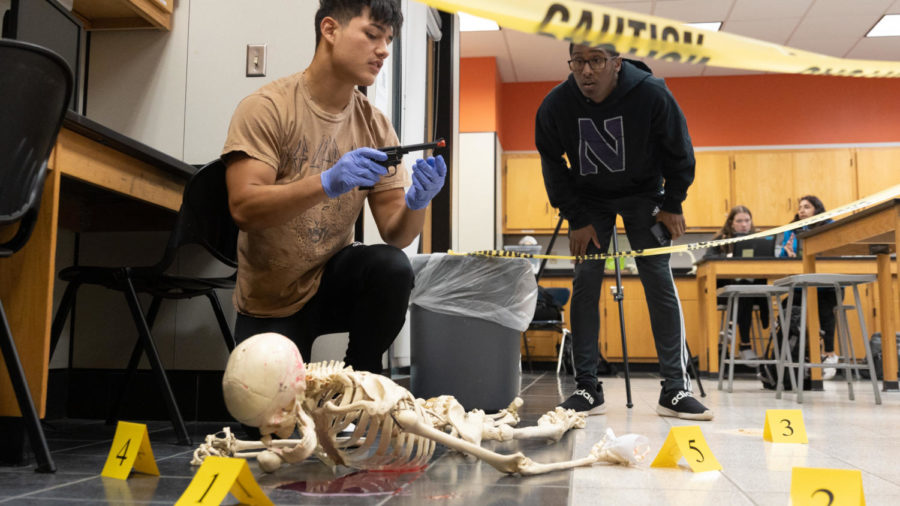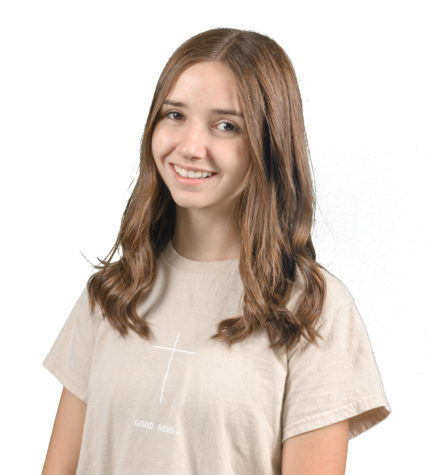On the case
Welcome to Room 210
Photo by Braylen Garren
Seniors Alejandro Cardenas and Dominic West investigate a mock crime scene. In Forensic Science, students learn to put their science skills into practice.
March 15, 2023
Texas High School’s diverse CTE program allows students the freedom to not only follow their passions, but pursue them in earnest and extend their skills beyond the academic sphere.
Under the CTE umbrella, forensic science stands out as a course that cultivates deductive reasoning and the usage of applied sciences, preparing students for success outside of the classroom.
“For a lot of kids, forensics will probably be the first time they’ve used their scientific knowledge for something that isn’t limited by worksheets,” science teacher Kelly Rowland said. “And the jump can be hard for some students to take, but those that do end up far better prepared for the outside world than those who fall on comfort.”
Forensics is a class with plenty of appeal for onlookers, and diving, even for a brief moment, would help seal the deal for students on the fence beforehand. Working hands-on, utilizing the knowledge you’ve learned and applying it to actual situations answers the old question of “when will this be useful” very well.
“We learn about a pretty wide range of topics in this class. Of course there’s the basics of criminalistics and how to apply the sciences to an investigation,” senior Dominic West said. “Then we get to analyzing crimes, understanding how they were committed and forming evidence to match with potential suspects. It’s an involved process but the reward is worth it every time.”
Students must utilize their raw intelligence alongside connecting and inferring conclusions from the information they receive. This integration of scholarly knowledge and knowledge formed by experience builds the backbone of forensic science. And it is this integration of two worlds that makes forensics students fitter for the outside world.
“The learning here is pretty hands-on. We get plenty of time to experience and feel our way through our work,” West said. “And honestly I think it’s that hands-on approach that makes this class feel different in a really good way from other classes.”
Another notable aspect of forensics is how easy it is to transition learning from the classroom to a precinct or laboratory. Though the methods are simplified for school use, the practices and information remain relevant throughout an aspiring forensic scientist’s career.
“I’m working my way into the army right now, so I chose this as more of a filler class,” West said. “But with where I’m at in life, forensics has really given me a good fallback when things get rough, having that comfort alone makes me feel way more secure for times to come.”
















